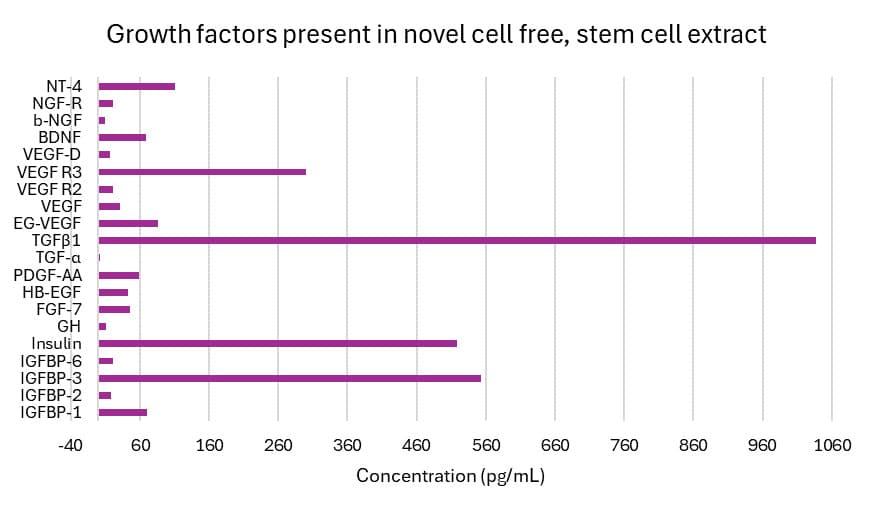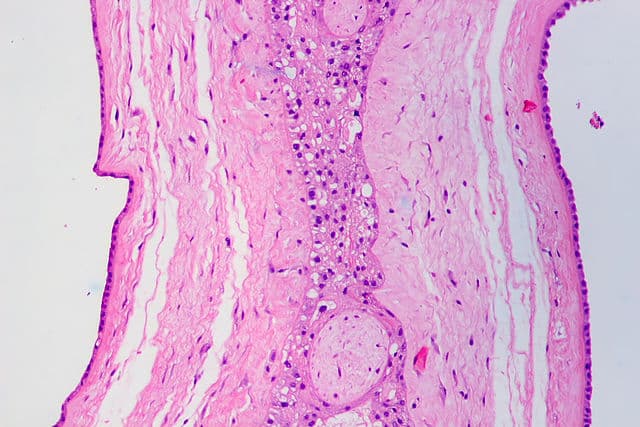November 13, 2024 | Uncategorized | Shuming Tsai
Exploring the therapeutic properties of stem cells and regenerative biomaterials
Regenerative medicine harnesses the power of biomaterials to facilitate repair and regeneration of diseased, injured, or dysfunctional tissues. The effectiveness of these biomaterials is largely attributed to the composition of growth factors, cytokines, and extracellular vesicles that work together to stimulate cellular proliferation, differentiation, and tissue remodeling.¬ To identify the bioactive molecules responsible for their therapeutic effects, researchers commonly rely on multiplex immunoassays to screen the protein content of these materials, with inflammation and growth factor panels being the most popular.
Stem Cell Extracts
In the past few decades, there has been intense interest in the clinical application of cell-free stem cell-derived extracts (CCMs) for stimulation of cell proliferation, tissue repair, and wound healing. The bioactive compounds in CCMs can exhibit anti-inflammatory effects, and do not carry many of the risks of whole-cell therapy, which include genetic instability, host rejection, and formation of ectopic tissue.
Gupta et al. identified various growth factors including GH, IGFBP1-3 and 6, insulin, PDGF-AA, VEGF, TGFα, and notably high TGFβ1 levels using the Quantibody® Human Growth Factor Array 1 in a novel cell-free, stem cell-derived extract (Fig. 1). High expression of the anti-inflammatory cytokine IL1-RA was detected using the RayBiotech Human IL-1 RA ELISA Kit.

Tissue Grafts
Amniotic tissue allografts, which are typically obtained from donors during live delivery, have shown tremendous promise as a regenerative treatment due to their very low immunogenicity (Fig. 2). Human case studies have demonstrated diverse applications, including wound healing, tendinopathies, and degenerative joint conditions.
Massee et al. used the Quantibody® Human Growth Factor Array 1 to analyze extracts of dehydrated human amnion/chorion membranes (dHACM), an effective treatment for diabetic foot ulcers. The array identified several regulators of inflammation and angiogenesis, including IL-1α, IL-1β, and IL-1RA, supporting the researchers’ findings that dHACM could stimulate proliferation and migration of adipose-derived stem cells.

Antibody Arrays For Regenerative Medicine Research
Understanding the composition and bioactivity of regenerative biomaterials is crucial in determining their clinical utility. RayBiotech provides a diverse selection of extensively cited multiplex immunoassays to capture protein profiles efficiently, and helping researchers achieve experimental end points.